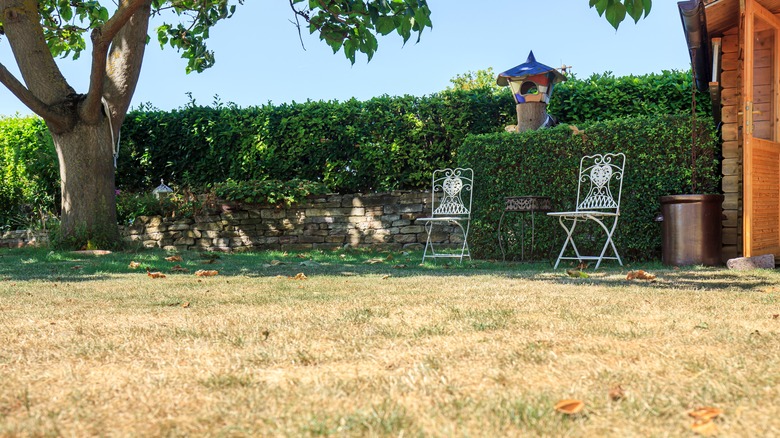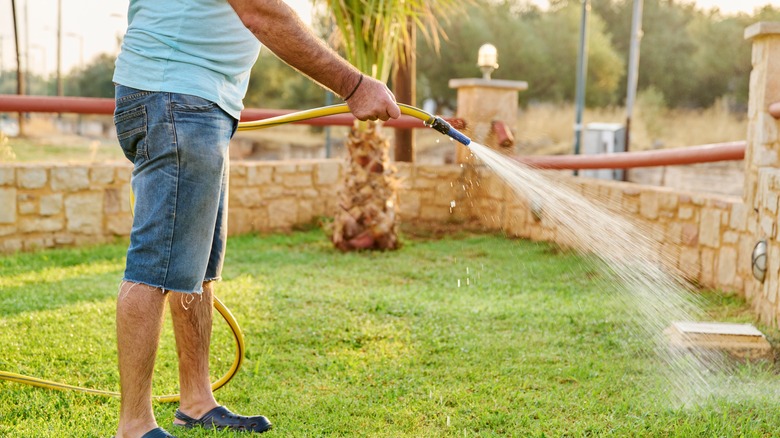The One Sure-Fire Way You Can Protect Your Lawn From Extreme Heat
Most homeowners know by now that a lawn needs plenty of water to thrive. However, lawns require more care during some times of the year than others. If the heat in your area gets too extreme, you'll want to pay attention. Your grass may turn brown in the summer due to the extreme heat, causing it to dry out. The one surefire way to prevent this is to water your lawn more to give it the moisture it needs.
Watering more often isn't necessarily helpful, but you should aim to water your lawn more deeply during extreme heat. For best results, water less frequently but more deeply. Aim to saturate the soil 7 to 8 inches deep for optimal root growth. This will help ensure the grass has wet roots, leading to it growing thicker. Morning is the ideal time to water your lawn, especially during a heatwave, but evening can work as well. During these times of the day, your lawn will be a bit cooler, and the water you use won't evaporate as quickly due to the heat.
Mistakes to avoid when watering your lawn in a heatwave
While the basic steps to watering your lawn in extreme heat are pretty straightforward, there are some mistakes you should avoid. First of all, avoid overwatering it. Even if you're eager to keep your lawn green, pace yourself and remember that it's better to aim for deeper watering with less frequency. Deep watering your lawn every few days or once a week is more effective than light watering daily. Get into the habit of inspecting your lawn during heatwaves. Pay attention, and if it looks dry, water it. However, avoid doing so if it already has enough. Too much water can lead to disease and microorganism growth and can be just as damaging as the heat.
When dealing with extreme heat and trying to prevent lawn burn in the summer, also keep your grass at the right length. Shorter isn't better — you should leave a bit of length on it. Grass can maintain its roots better if it's slightly longer. Keep it at a length of 3 to 4 inches for best results. Finally, remember that you shouldn't fertilize your lawn when it's too hot. This could cause more damage and be too harsh on your lawn when combined with heat and dry conditions.

